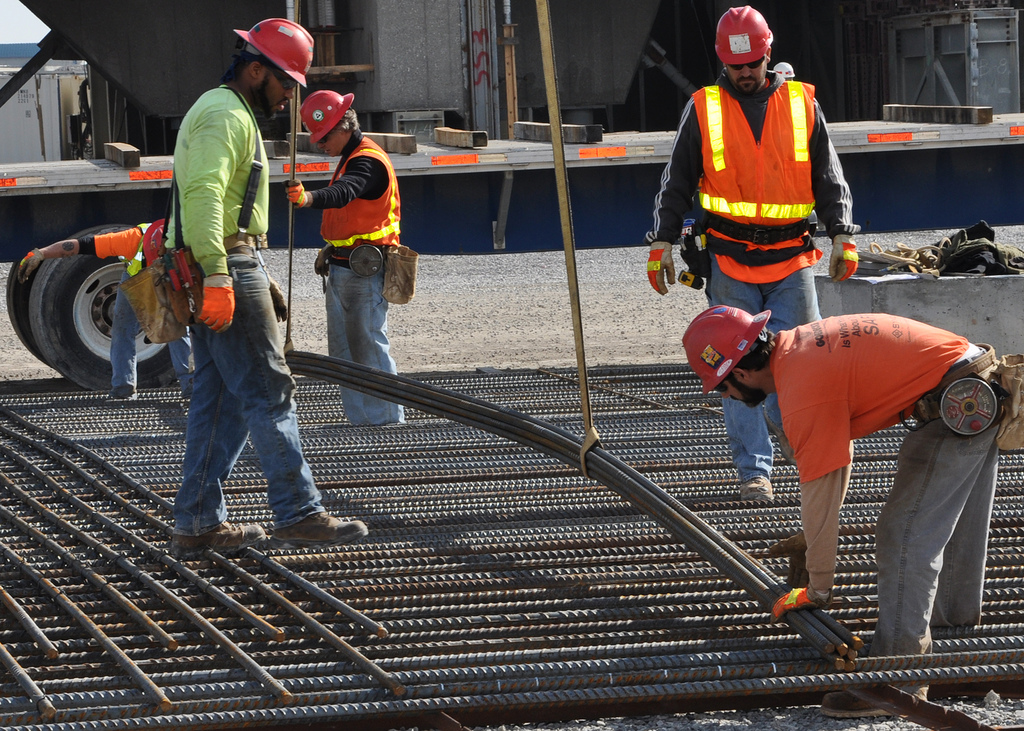Image: LouisvilleUSACE
After enduring the brutal onslaught of the financial crisis, the UK construction is fighting back at an exhilarating pace, despite limitations due to supply shortages.
This resurgence in the construction sector was reflected in the Markit/CIPS construction Purchasing Managers’ Index jumping to 64 in August from 62.4 in July. This came as a great surprise to economists who had forecast a drop in the index.
And to top it off, August was the 16th month in a row that the index was above the 50 point level. According to Markit, this pace of growth is causing a number of supply problems, the biggest one being decreased availability of materials and sub-contractors. Both of these have been dropping at their fastest rate since the survey began in 1997.
David Noble, group chief executive at the Chartered Institute of Purchasing & Supply, had this to say:
“The sector is struggling to find enough skilled tradesmen to keep pace with new work and the labour market will continue to put pressure on costs until the next wave of apprentices begin to enter the jobs market.” One knock-on effect has been sub-contractors increasing their rates substantially.
Getting Back To Normal
The catalyst for this growth was a combination of low interest rates and government programmes launched in 2013 to boost demand and stimulate widespread economic recovery.
And this growth was shown through increases in residential housing, civil engineering and commercial building, with residential construction being the strongest performer.
However, despite all these increases, the rate of the construction of new homes remains well below the levels needed to meet the demand for housing. And whilst the strong increases in London are encouraging, Stefan Friedhoff, global corporates managing director for construction at Lloyds Bank Commercial Banking, said it was “vital” that the current momentum was maintained.
“The true proof of a return to normality will be in activity spreading from a consistently buoyant London out to other regions of the UK,” he added.
A lingering concern voiced by Howard Archer, chief European and UK economist at IHS Global Insight, was regarding interest rates from the Bank of England. Archer commented:
“We now think it is most likely that the Bank of England will hold fire until the early months of 2015 given low inflation, still very weak earnings and the downside risks to growth coming from heightened geopolitical tensions and stuttering eurozone economic activity, but there is still a genuine possibility that the MPC could act this year.”







